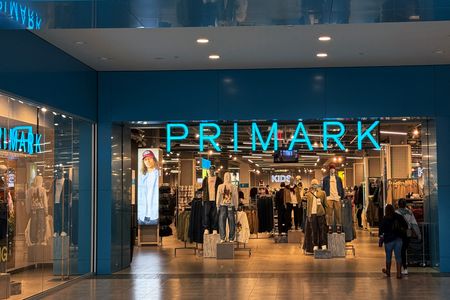By James Davey
LONDON (Reuters) -Associated British Foods could separate its Primark fashion chain from its food businesses, it said on Tuesday, as it reported a 13% drop in full-year profit driven by a weak performance in its sugar unit.
In addition to Primark, which trades from 475 stores in 18 countries and contributes over half of AB Foods’ profit, the group owns grocery brands such as Ovaltine, Ryvita and Twinings, as well as major sugar, agriculture and ingredients businesses.
CEO George Weston said the board had for “several weeks” been conducting a review of the group’s structure with a view to maximising long-term value, a process it hoped to conclude by April 2026 when first-half results are reported.
“Although no decision has been taken, the outcome of this review may lead to the board deciding to undertake a separation of the Primark and Food businesses,” the group said, adding that Rothschild & Co had been assisting with the process.
PRIMARK MAY HAVE $18 BILLION IMPLIED MARKET CAP
Analysts at Panmure Liberum said the foods businesses had helped Primark survive during the pandemic when its shops were closed and it had no online offer.
But they said the group was valued at a 11% conglomerate discount to peers.
They said using a price-to-earnings methodology based on 2026 forecasts, a separated Primark could have an implied market capitalisation of 13.4 billion pounds ($18.0 billion) compared with 18.5 billion pounds for the group.
Weston, who for years has defended AB Foods’ conglomerate structure, told Reuters the group wouldn’t be announcing the review “if we didn’t think that there was a fair likelihood of it happening”.
“But there are a number of issues that we can now investigate which could make us think that keeping them together was a better idea,” he said in an interview.
Weston said the review reflected Primark’s scale and growth opportunities and a belief that the food businesses are underappreciated by investors.
“We would really welcome more scrutiny based on more understanding of food,” he said.
The review is being conducted in consultation with the group’s largest shareholder, Wittington Investments, which remained committed to maintaining majority ownership of both businesses.
Wittington, which is controlled by the Weston family, owns 58.8% of the group’s equity, according to LSEG data.
“This isn’t a portfolio review. This review has one question, which is, does Primark belong with food or not?” said Weston.
“The way that the demerger would work would simply be, if you had one share in ABF, you’d end up with one share in ABF and one share in ‘Newco’.”
Weston said if there was a demerger, he would be CEO of the foods businesses. A new CEO for Primark is still being sought after Paul Marchant’s resignation in March.
A POSITIVE SURPRISE, ANALYSTS SAY
“This is a positive surprise,” said analysts at Barclays. “Primark is now of a size that it makes sense, and food is undervalued within ABF.”
Shares in AB Foods were down 3.2% at 1139 GMT, paring 2025 gains to 8%.
The group made adjusted operating profit, its preferred profit measure, of 1.734 billion pounds in its year to September 13, on revenue down 3% at 19.46 billion pounds.
While adjusted operating profit increased 2% at Primark, it fell 6% in grocery, while sugar was only breakeven, hurt by low European prices.
“In 2026, we expect the group to deliver growth in adjusted operating profit and adjusted EPS, and we are confident in the group’s medium and long-term growth prospects,” AB Foods said.
However, it cautioned it expected the consumer environment to remain subdued.
($1 = 0.7451 pounds)
(Reporting by James Davey, additional reporting by Paul Sandle, editing by Jan Harvey)










